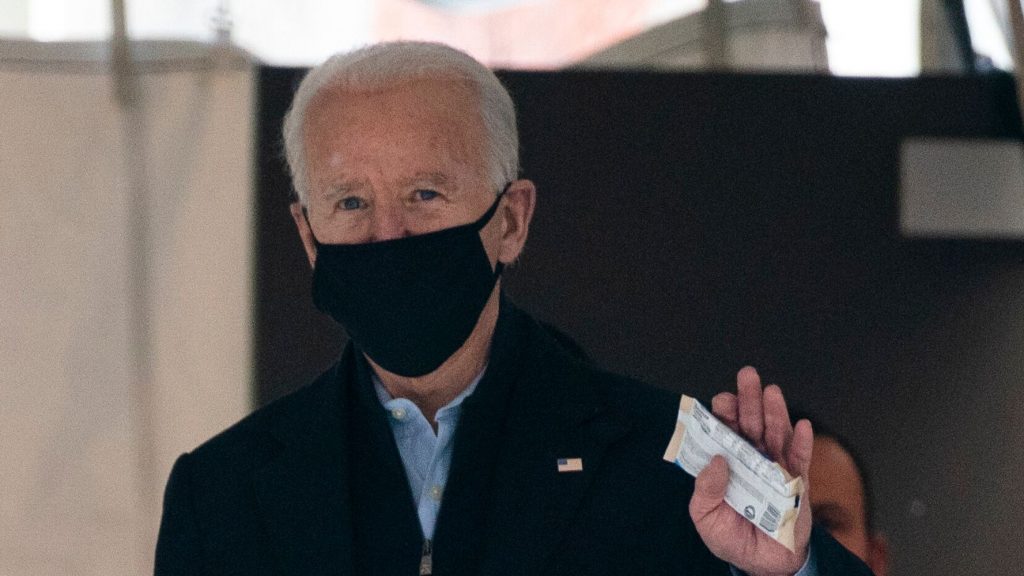Joe Biden to propose 8-year citizenship path for immigrants

Joe Biden for 8 year citizenship
On the 1st day of his presidency, President-elect Joe Biden plans to unveil a comprehensive immigration bill, aiming to provide an eight-year path to citizenship for the estimated eleven million habitants living in the United States (U.S) without legal status, a significant shift from the Trump administration’s harsh immigration policies.
Biden to fulfill promise to Latino Voters for Immigration to US
After four years of President Donald Trump’s draconian policies and significant deportations, Biden is on course to fulfill a major campaign promises vital to Latino voters and other immigrant groups. It provides one of the quickest paths to citizenship for immigrants who have been living without legal status in recent years. Still, it omits the customary Republican trade-off of increased border security, putting its success in doubt in a tightly divided Congress. The habitants living in the United States without legal status as of January 1, 2021, will have a five-year path to temporary legal status, or a green card, if they pass backdrop checks, pay taxes, and meet other basic standards. If they want to become citizens, they’ll have to go through a three-year process.
Some More Changes to US Citizenship expected
The process would be much quicker for some immigrants. Dreamers or young individuals who came to the United States illegally as children, agricultural laborers, and others with temporary protective status might all apply for green cards more quickly if they work, go to school, or meet other requirements.
The idea isn’t as extensive as Biden’s last significant immigration change during the Obama administration when he was vice president.
According to a person who does not have any problem with the proposal who requested anonymity to discuss it, the bill is expected to be introduced after Biden takes office on Wednesday.
As a candidate, Biden described Trump’s immigration policies as an “unrelenting assault” on American values, promising to “repair the damage” while maintaining border enforcement.
More on Biden’s change in heart:
Those living in the United States without legal status as of January 1, 2021, will have a five-year path to temporary legal status, or a green card, if they pass background checks, pay taxes, and meet other basic standards. If they choose to pursue citizenship, they will have to complete a three-year process.
The process would be quicker for some immigrants. Dreamers or young individuals who came to the United States illegally as children, agricultural laborers, and others with temporary protective status might all apply for green cards more quickly if they work, go to school, or meet other requirements.
The idea isn’t as extensive as Biden’s last significant immigration change during the Obama administration when he was vice president.
It does not, for example, have a vital border security component but instead calls for developing strategies. It also does not introduce any new guest workers or visa programs.
It addresses some of the underlying causes of migration from Central America to the United States and provides funds for workforce development and English language acquisition.
Biden is anticipated to act quickly to undo Trump’s other immigration policies, such as lifting the ban on arrivals from six primarily Muslim nations.
Throughout the Democratic primary, Biden often mentioned immigration as one of his “day one” goals, citing the range of executive authorities he could use to overturn Trump’s policies.
Transition of Biden
Immigration is a significant subject on which Biden loyalists and even some Republicans believe the next administration will find common ground with Senate Republican Leader Mitch McConnell and enough other GOP senators to avoid the deadlock that has plagued both parties for decades.
That kind of enormous victory — even if it requires compromise — might be crucial for Biden as he seeks legislative successes in a divided Congress, where Republicans are likely to reject other Biden priorities such as bringing back some of the GOP’s 2017 tax cuts and expanding federal spending.
As a contender, Biden went so far as to argue that the Obama administration’s aggressive deportation policies went too far.
Barrow contributed to this report from Wilmington, Delaware. Elliot Spagat of the Associated Press contributed to this report from San Diego.

 Recent Changes to Canada’s Work Permit Rules and its impact on Immigrants from India
Recent Changes to Canada’s Work Permit Rules and its impact on Immigrants from India  Applications for UK Immigration witness major decline as the Immigration Laws undergo significant changes
Applications for UK Immigration witness major decline as the Immigration Laws undergo significant changes  Recent Changes to Canada’s Temporary Foreign Worker Program (TFWP) Effective May 1, 2024
Recent Changes to Canada’s Temporary Foreign Worker Program (TFWP) Effective May 1, 2024  Immigration Process to Latvia and Job Prospects
Immigration Process to Latvia and Job Prospects  Notario Fraud- a rampant fraudulent practice trapping immigrants to US and Canada
Notario Fraud- a rampant fraudulent practice trapping immigrants to US and Canada  Canada Immigrant Investor Program 2024- loaded with many good features- Check out here
Canada Immigrant Investor Program 2024- loaded with many good features- Check out here  What actions by Trump Government are in store for illegal immigrants in US? What are Challenges to deport illegal immigrants from US?
What actions by Trump Government are in store for illegal immigrants in US? What are Challenges to deport illegal immigrants from US?  What are changes in Canada Start up Visa Program and Self-Employed Persons Program. How would it affect the potential immigrants to Canada?
What are changes in Canada Start up Visa Program and Self-Employed Persons Program. How would it affect the potential immigrants to Canada?